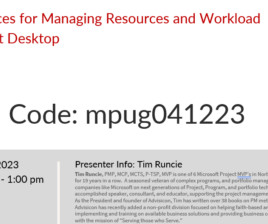Artificial Intelligence and Project Management: The First Step
The IIL Blog
OCTOBER 24, 2023
In November 2022, when ChatGPT was made available to the public, it put Artificial Intelligence (AI) into the spotlight for all people – not just ‘techies’ and those who have followed AI for a long time. Indeed, Artificial Intelligence is not really new. The groundwork for AI started in the 1900s [1]. Lohr, “ The A.I.




















Let's personalize your content